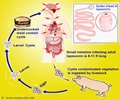Children tested for acute lymphoblastic leukemia may suffer from retaining memories, learning and other cognitive functions.

"Our goal is to be able to identify who is at risk for cognitive late effects and provide neuroprotective interventions," said study senior author Deborah Waber, PhD, senior associate in psychiatry and director the Learning Disabilities Program in Boston Children's Department of Neurology, who has spent 30 years studying the relationship between cognitive decline and ALL therapy, including cranial radiation and/or chemotherapy to the central nervous system. "This retrospective analysis tells us that going forward we may wish to examine children's genotypes at baseline and conduct prospective research to learn why these specific gene variants may increase risk of toxicity."
ALL is the most common childhood cancer, with survival rates of around 90 percent. ALL patients receive chemotherapy to the central nervous system, and some receive cranial radiation, in order to eliminate cancer cells that can lurk in the brain and raise their risk of relapse. ALL survivors often experience problems with persisting attention, memory and learning, which have been documented by neurocognitive studies conducted in the years after completion of curative treatment.
"The more we look, the more we find that many survivors experience changes in how they think," said study lead author Peter Cole, MD, a pediatric hematologist/oncologist at The Children's Hospital at Montefiore and associate professor of pediatrics at Albert Einstein College of Medicine of Yeshiva University. The variability in these changes, he added, raises an interesting question: "If we give all ALL patients the same treatment, why is it that some of them experience memory or cognitive deficits, but not all of them?"
To determine whether inherited genetic variations might have roles to play, the research team gathered stored blood samples and cognitive function test data (e.g., IQ, memory, attention span, hyperactivity behaviors) on 350 ALL survivors treated at eight centers in the United States and Canada. All of the survivors had been treated on one of two consecutive Dana-Farber Cancer Institute ALL Consortium therapy protocols, 95-01 (1996-2000) or 00-01 (2000-2004).
The researchers then examined each survivor's genome for common variants in 28 genes involved in drug metabolism or cellular damage responses, and then compared the results against the cognitive data.
After controlling for factors such as age at diagnosis, sex, socioeconomic status and whether the child received radiation to the brain, the research team found that variants in four genes - NOS3, SLCO2A1, HFE and COMT - were significantly associated with neurocognitive effects. All four are members of pathways that regulate inflammation in the brain or protect cells from oxidative stress, a form of cellular damage caused by chemotherapy.
Source-Eurekalert
 MEDINDIA
MEDINDIA




 Email
Email





